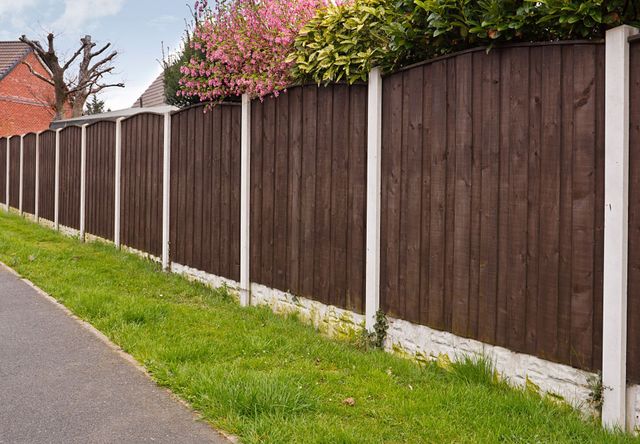All Categories
Featured

When it comes to choosing the ideal secure fencing product for longevity, functioned iron stands out as one of the most reliable and lasting alternatives readily available. Allow's take a more detailed look at wrought iron secure fencing and exactly how it stacks up against options like plastic, aluminum, and timber.
Strength and Durability of Wrought Iron Fence. Unlike several other fence choices, functioned iron can endure extreme environmental conditions, including extreme warm, hefty rain, and also solid winds. Because it is a metal, wrought iron is not vulnerable to the wear and tear that wood fences usually experience, such as deteriorating, bending, or insect invasions.
Longevity: Wrought iron fencings are extremely difficult and can withstand influences and other types of physical stress and anxiety that may harm other products. When effectively maintained, they can last for 50 years or even more, making them an investment that will give lasting value.
Wrought Iron vs. Wood Fencing. Wood fencings, while standard and visually pleasing, generally need even more upkeep and have a shorter life expectancy contrasted to wrought iron. Wood is prone to rot, termites, and weathering over time, every one of which can endanger its structural honesty. Furthermore, timber fences may require to be replaced or repaired every 10 to 20 years, depending upon the environment and the kind of wood utilized.
Upkeep: While wood fences require to be on a regular basis treated with sealants, stains, or paints to keep their appearance and longevity, functioned iron fencings generally require much less maintenance. They might require occasional cleansing or painting to stop corrosion, specifically in coastal or humid locations, but they will not deal with the same types of destruction as timber.
Long life: While a properly maintained wooden fence could last 20 to thirty years, functioned iron can exceed that lifespan by several decades, making it a more sturdy choice in the future.
Wrought Iron vs. Plastic Fence. Plastic fence has actually come to be a preferred choice to timber due to its reduced upkeep and resistance to the elements. Unlike wood, plastic doesn't rot or warp, and it does not require to be repainted or dealt with.
Toughness: While plastic is resistant and rather sturdy to rot and fading, it still can not match the long-term strength and toughness of wrought iron. A plastic fence could last around 20 to thirty years, depending upon ecological aspects, yet it does not have the structural stability that wrought iron offers.
Maintenance: Vinyl requires minimal upkeep compared to wood, however it can still fade in time, specifically in locations with intense sun direct exposure. Wrought iron might need occasional corrosion avoidance therapies yet normally calls for less interventions than vinyl.
Wrought Iron vs. Light Weight Aluminum Fencing. Light weight aluminum is an additional metal option to functioned iron, and while it shares a few of the toughness attributes of functioned iron, it is generally less solid and durable. Light weight aluminum is extra light-weight and immune to corrosion and rust, making it a preferred choice for low-maintenance fence. Nonetheless, it's not as solid as functioned iron and might be more susceptible to flexing or denting under pressure.

Longevity: Wrought iron is dramatically stronger and more durable than aluminum. While light weight aluminum fences can last for numerous years, they may not stand up too in high-traffic or high-impact locations. On the other hand, wrought iron is much extra resistant to physical damages and can better hold up against pressure and pressure.
Upkeep: Both wrought iron and aluminum fencings require some upkeep, largely to stop rust. Light weight aluminum is much less most likely to corrosion than functioned iron, making it a more low-maintenance choice in areas with high humidity or seaside salt direct exposure.
Final Thoughts: Wrought Iron's Sturdiness Advantage. Wrought iron attracts attention as one of the most sturdy secure fencing products available, surpassing timber, plastic, and aluminum in regards to stamina, longevity, and overall efficiency. While it does call for periodic upkeep, specifically to avoid corrosion, its capability to hold up against severe climate condition, physical stress, and the examination of time makes it an excellent investment for house owners and organizations looking for a lasting, secure fence option.
For those who focus on strength and long life most importantly else, functioned iron is an unbeatable option. Whether you're protecting a home, boosting the appearance of your yard, or giving safety for a business site, functioned iron fence will give years of toughness and aesthetic charm that few other products can match.
Latest Posts
Laminate Floor Covering: Design Meets Sturdiness at Carpet Interiors Floor & Home
Published Apr 22, 25
2 min read
Sophisticated, Sturdy Floor Tile Floor Covering for each Space
Published Apr 22, 25
1 min read
Smooth Flooring Installation-- The Carpet Interiors Floor & Home Way
Published Apr 22, 25
2 min read
More
Latest Posts
Laminate Floor Covering: Design Meets Sturdiness at Carpet Interiors Floor & Home
Published Apr 22, 25
2 min read
Sophisticated, Sturdy Floor Tile Floor Covering for each Space
Published Apr 22, 25
1 min read
Smooth Flooring Installation-- The Carpet Interiors Floor & Home Way
Published Apr 22, 25
2 min read